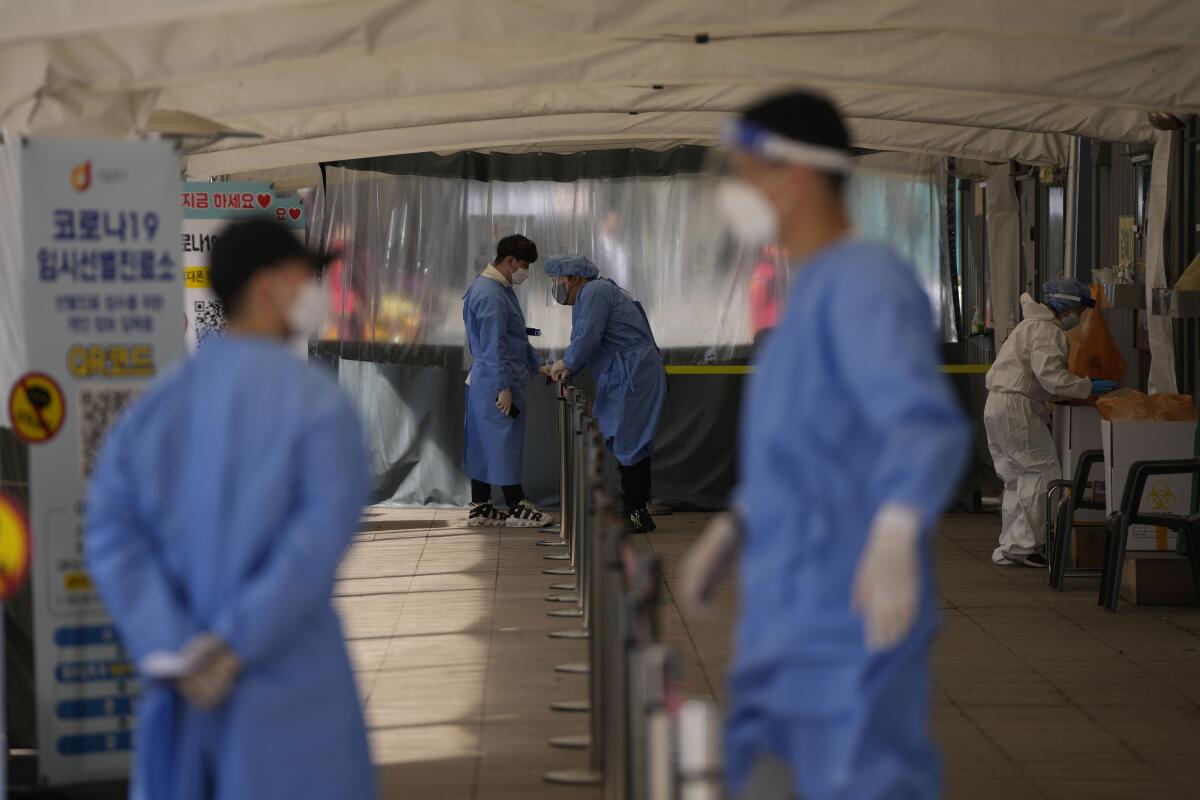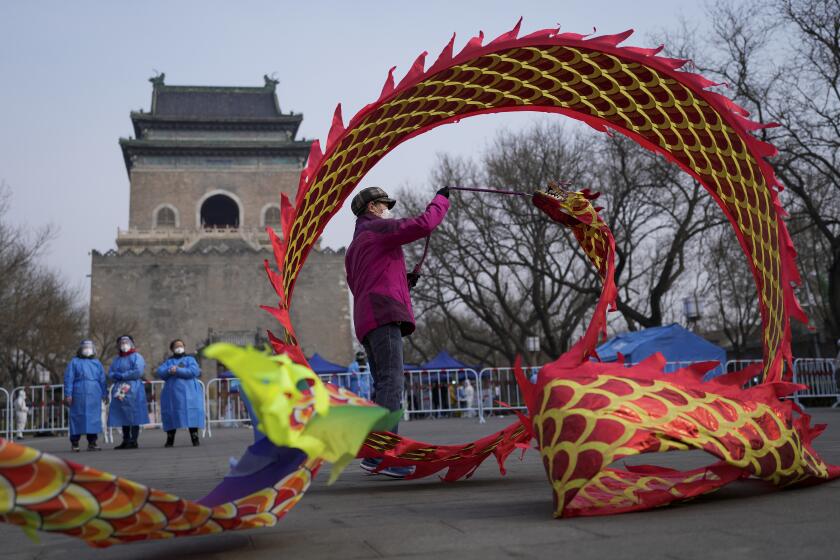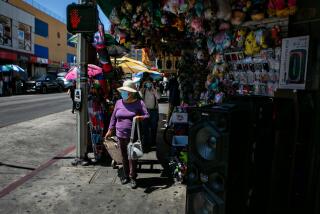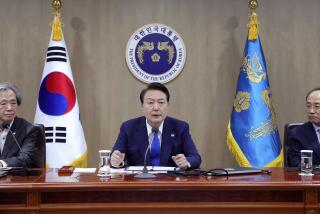South Korea’s surge of Omicron infections has likely peaked, officials say

- Share via
SEOUL — South Korea’s daily average of new coronavirus cases declined last week for the first time in more than two months, but the number of critically ill patients and deaths will likely continue to rise amid the Omicron-driven outbreak, officials said Monday.
South Korea reported an average of about 350,000 new cases last week, the Korea Disease Control and Prevention Agency said Monday. It was the first drop in the weekly average in 11 weeks, agency Commissioner Jeong Eun-kyeong said.
The current outbreak has likely peaked and is expected to trend downward, Jeong said, citing expert studies. But new cases in South Korea will likely drop slowly because of relaxed social-distancing rules, an expansion of in-person school classes and rising infections from the new coronavirus variant known as BA.2, or the “stealth Omicron,” she said.
The number of COVID-19 patients in serious or critical condition and deaths from the disease are also expected to keep rising for now, Jeong said. Experts say these counts often trail about two weeks behind the changes in case counts.
The lockdown in China’s largest city is part of the country’s ‘zero-tolerance’ COVID-19 strategy, but questions over economic costs are growing.
Health Minister Kwon Deok-cheol said separately that the Omicron-led outbreak has probably peaked, though a more thorough analysis is needed to confirm whether the outbreak has shifted into a downward trend.
On Monday, South Korea reported 187,213 new coronavirus cases in the latest 24-hour period, marking the first time daily cases have fallen below 200,000 in 25 days. The number of seriously or critically ill patients reached a record high of 1,273.
The highly transmissible Omicron variant has forced South Korea to abandon a stringent COVID-19 response based on mass laboratory tests, aggressive contact-tracing and quarantines in order to focus limited medical resources on priority groups, including people 60 and older and those with preexisting medical conditions.
More to Read
Sign up for Essential California
The most important California stories and recommendations in your inbox every morning.
You may occasionally receive promotional content from the Los Angeles Times.











